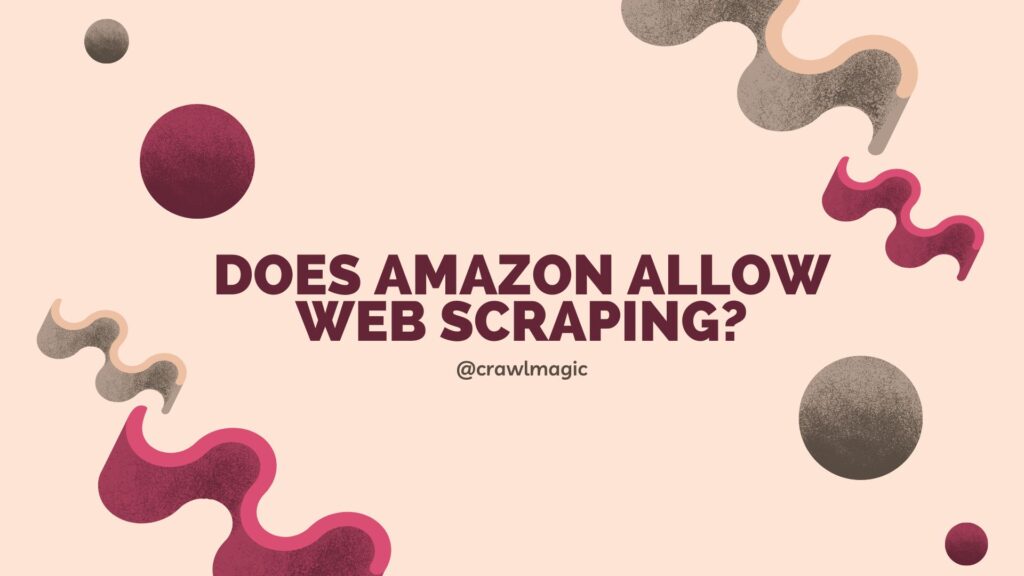In today’s digital age, data has become a new form of currency, fueling businesses, research, and decision-making processes. As the world’s largest online retailer, Amazon has vast amounts of data, making it a tempting source for data enthusiasts and businesses. But the pressing question remains: Does Amazon allow web scraping?
Web Scraping and Amazon: A Brief Introduction
Web scraping refers to the automated process of extracting data from websites. This technique transforms the unstructured web data into a structured form, enabling businesses and researchers to gather insights and make data-driven decisions. Companies like CrawlMagic have made a mark in this domain, offering state-of-the-art web scraping solutions to clients globally.
Amazon, with its vast product listings, reviews, and pricing data, presents a goldmine of information. But the company, understandably, places a premium on its data.

Amazon’s Stance on Web Scraping
While Amazon’s terms of service make it clear that they discourage any form of automated access to their site, it doesn’t explicitly make scraping illegal. The company uses various mechanisms to detect and prevent automated access. These range from CAPTCHAs to rate-limiting and even IP bans.
However, it’s important to note that a responsible and ethical approach to web scraping can mitigate potential pitfalls. By ensuring that scraping activities do not disrupt Amazon’s services, remain respectful of their robots.txt file, and avoid accessing sensitive data, there’s a gray area where data extraction can occur responsibly.
Navigating the Web Scraping Landscape with Amazon
Given the potential legal and ethical challenges, partnering with experienced players in the field becomes crucial. CrawlMagic, for instance, employs sophisticated techniques to ensure that scraping aligns with best practices and stays within permissible boundaries.
A few strategies include:
- Rate Limiting: Ensuring requests to the website are spaced out to avoid overloading Amazon’s servers.
- User-Agent Rotating: By periodically changing the user-agent, one can mimic human behavior and reduce the chances of detection.
- Avoiding Deep Scraping: Rather than scraping every piece of data, prioritizing crucial data points reduces the load on servers and is less likely to raise red flags.
Benefits of Ethical Web Scraping from Amazon
When done right, scraping Amazon provides numerous benefits:
- Market Analysis: Understand market trends, product popularity, and emerging niches.
- Pricing Strategies: By analyzing product prices, businesses can devise competitive pricing models.
- Product Reviews: Reviews shed light on product performance and customer preferences.
While Amazon doesn’t openly embrace web scraping, there’s a nuanced space where responsible and ethical scraping can occur without infringing on the platform’s terms. With expert guidance, like the services offered by CrawlMagic, businesses can navigate this gray area, harnessing the immense data potential Amazon offers.
